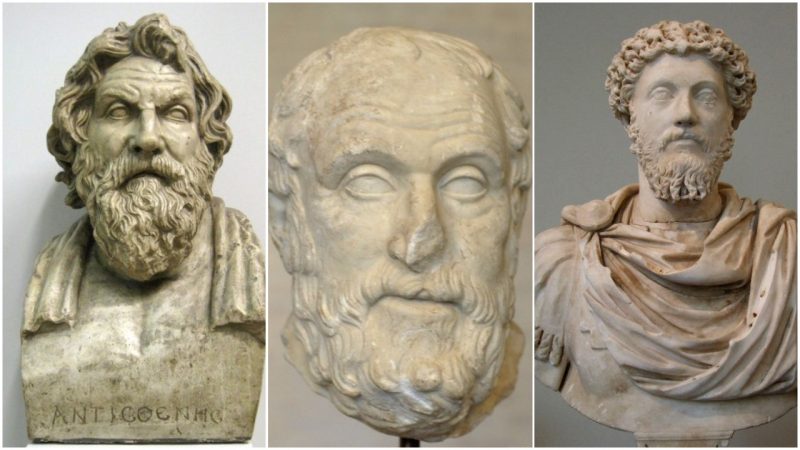In 155 BC, three Greek philosophers visited Rome after being invited to share knowledge and accomplishments in their respected fields of interest. Carneades, head of the Platonic Academy, Critolaus of Aristotle’s Lyceum, and the head of the Stoics, Diogenes of Babylon, all appeared before the Roman officials.
As they were presenting their teachings, the Roman audience couldn’t help but notice that all three wise men had their own distinct facial hair. This introduction would lead to a wider interest in Greek philosophy, but it would also create a thirst for imperial expansion that would eventually turn Rome into an ancient superpower.
Less than a decade later, the Roman Republic conquered Greece after the Battle of Corinth in 146 BC. Even though the Greeks proved to be inferior to their Latin neighbors in their military ability, they possessed a level of culture unseen and unimaginable to the young Roman Republic.
Therefore, without hesitation, the Romans decided to appropriate Greek religion, philosophy, and literature, and produce a complex synthesis that became the basis of the entire Western Civilization.

Greek philosophers earned great respect in Rome, to where they were literally imported to serve as teachers of Hellenic thought. Horace, a famous Roman poet, described this fascination with the witty remark:
“Captive Greece captured her rude conqueror.”
So the age of enlightenment began. But knowledge wasn’t the only thing being imported in those days―the entire visual identity of a philosopher was imitated as well.
The reason why the beard became one of the main physical traits of a philosopher was that shaving was more widespread than in the times of Socrates and Plato. In 5th century BC, these two masters of metaphysics looked like just about anyone else in Athens, since all men wore beards.
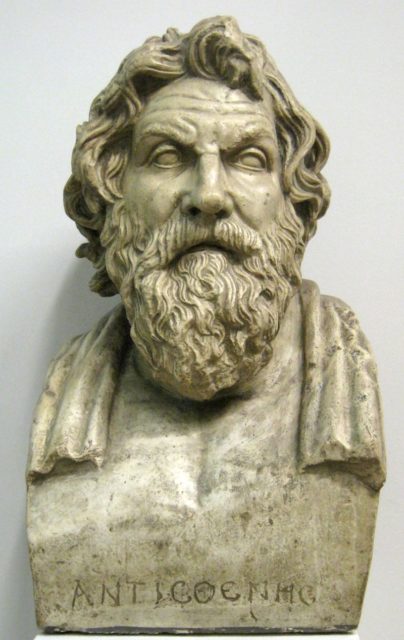
This fashion changed over time, as shaving was becoming more and more synonymous with respect, dignity, and social status. After all, Alexander the Great was clean-shaven and rejected the notion of wearing a beard.
So the term “philosopher’s beard” was coined. Since facial hair became reserved for the cloud-dwelling thinkers, it served as a testimony of wisdom and of old age.
In Rome, different schools of thought could be recognized by different styles of beard. The styles were, of course, modeled by the first three representatives who visited Rome as pilgrims of their philosophical movements.
For example Stoics, and their ambassador Diogenes of Babylon, believed that human virtue is above all values. Their code of behavior insisted on durability and dignity in the face of all life’s predicaments. One of their most respectable members, Epictetus, once implied that in a world of clean-shaven Romans, “the true philosopher will only act according to reason or according to nature, rejecting the arbitrary conventions that guide the behavior of everyone else.”
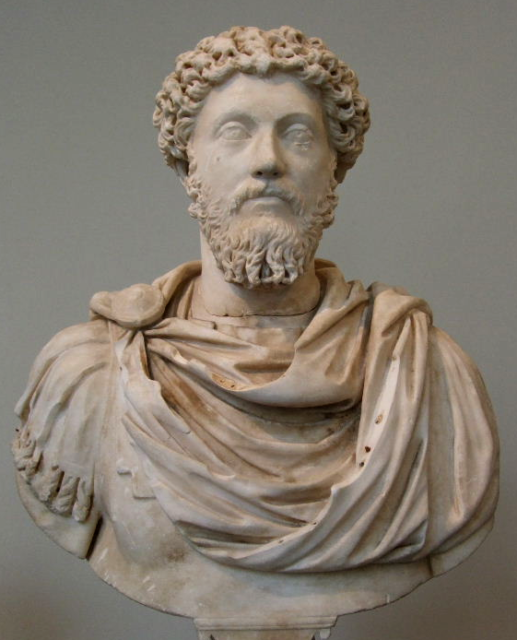
The philosopher’s beard was more than just a physical trait. It held a great amount of symbolic value as well.
In his 1988 publication The art of living: the Stoics on the nature and function of philosophy, John Sellars observes that “[Stoics viewed] that it is acceptable to prefer certain external goods so long as they are never valued above virtue“.
This allowed them to trim their beards and wash them, keeping them in presentable order.
Their teachings were partially derived from an older school of Hellenic philosophy called Cynicism. Cynics, who were the disciples of Diogenes (not to be confused with the Diogenes of Babylon), would wear a messy, unattended beard. Compared to the Stoics, the Cynics were radicals, both in style and in substance.
The philosophy of Diogenes relied exclusively on virtue, neglecting all that is physical. Therefore, the long and dirty beard of a Cynic was indeed a true fashion statement, one that resonated with the way of life and the philosophy they were advocating.
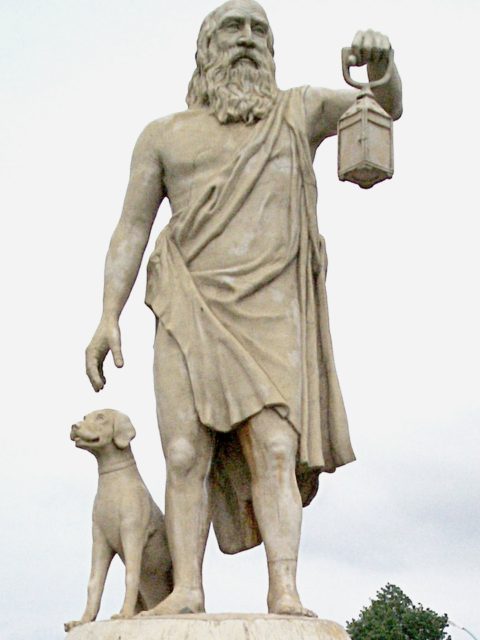
To illustrate the Cynics’ worldview, it is enough only to mention one of many anecdotes related to their founder, Diogenes, who lived in 4th century BC. Allegedly, he had a habit of strolling around squares and marketplaces with a lamp, in broad daylight.
His explanation was that he was “just looking for an honest man,” as it was, apparently, the hardest thing to find.
A school of thought opposite from that of Cynics and Stoics was the Peripatetics. The philosophers from the original circle of Peripatetics revolved around Aristotle, and in Rome they were initially represented by Critolaus.
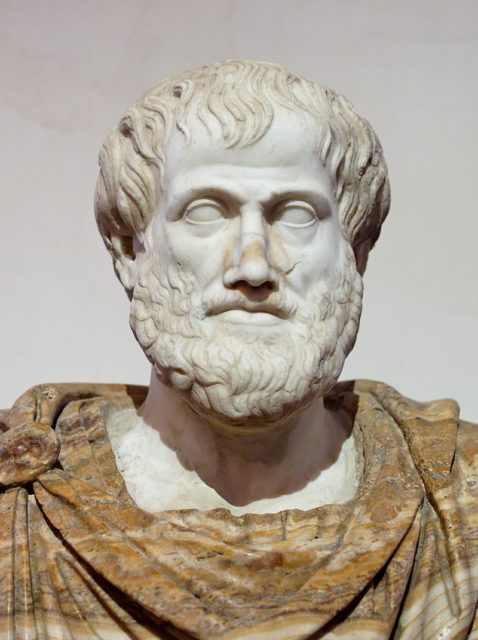
The Peripatetics (the name was derived from the Greek word peripatêtikos, meaning “to walk around”) treasured their earthly appearance and believed that it is necessary to hold a social status in the material world.
Even though they were tied to the philosophical term of virtue as well, their approach was strictly empirical, meaning that they were fully immersed into the world around them, trying to distinguish material and concrete from abstract and invisible.
Opposite to the Stoics, Sellars notes that the Peripatetics took great care of their beards, as they were following Aristotle’s maxim by which “external goods and social status were necessary for the good life together with virtue.”
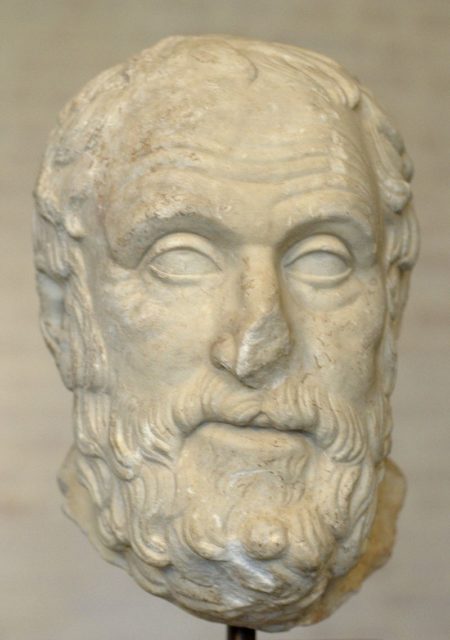
Carneades agreed with this standpoint to a certain degree. Even though the representative of Plato’s Academy was a skeptic who tirelessly doubted any form of truth, he admitted that, alas, we all must live and act according to some rule of practical life. Since he detested the dogmatic code of behavior established by the Stoics, Carneades aligned himself with the Peripatetics when it came to beards.
Read another story from us: Beards displayed Knights’ virility & honor in Middle-Age Europe
Once these trends were formed, they cemented the eternal image of the absent-minded philosopher of ancient times, dressed in robes and constantly stroking his beard, as if he were always on the verge of a great discovery, seconds away from screaming Eureka at the top of his lungs.
